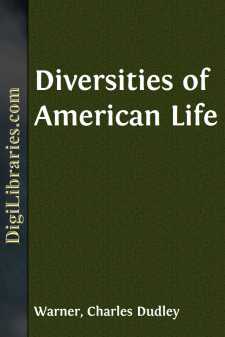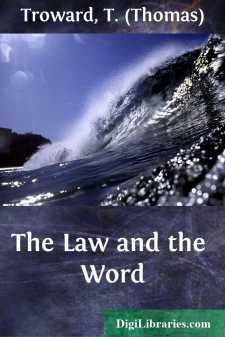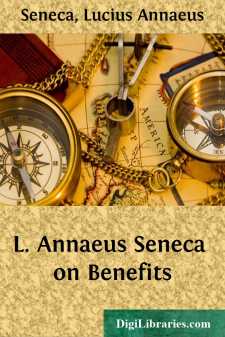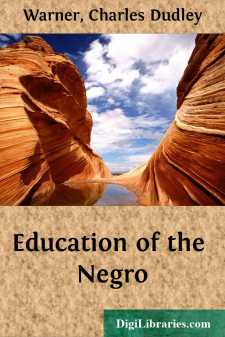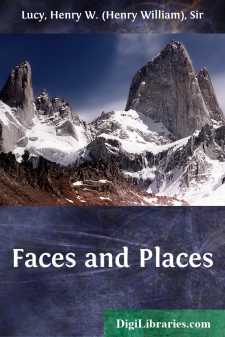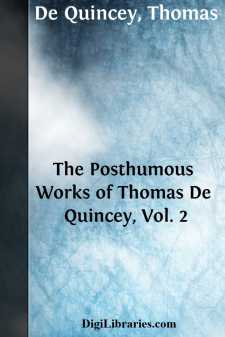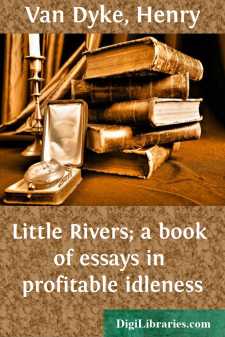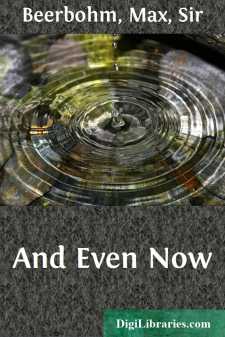Literary Collections
- American 84
- Ancient, Classical & Medieval 14
- Asian 1
- Australian & Oceanian 1
- Canadian 55
- Continental European 121
- English, Irish, Scottish, Welsh 179
- Essays
- General 24
- Letters 46
- Middle Eastern 1
Essays Books
Sort by:
This is a very interesting age. Within the memory of men not yet come to middle life the time of the trotting horse has been reduced from two minutes forty seconds to two minutes eight and a quarter seconds. During the past fifteen years a universal and wholesome pastime of boys has been developed into a great national industry, thoroughly organized and almost altogether relegated to professional...
more...
I. THE POET. Those who are esteemed umpires of taste are often persons who have acquired some knowledge of admired pictures or sculptures, and have an inclination for whatever is elegant; but if you inquire whether they are beautiful souls, and whether their own acts are like fair pictures, you learn that they are selfish and sensual. Their cultivation is local, as if you should rub a log of dry wood...
more...
CHAPTER I If I were asked what, in my opinion, distinguishes the thought of the present day from that of a previous generation, I should feel inclined to say, it is the fact that people are beginning to realize that Thought is a power in itself, one of the great forces of the Universe, and ultimately the greatest of forces, directing all the others. This idea seems to be, as the French say, "in the...
more...
PREFACE Seneca, the favourite classic of the early fathers of the church and of the Middle Ages, whom Jerome, Tertullian, and Augustine speak of as "Seneca noster," who was believed to have corresponded with St. Paul, and upon whom [Footnote: On the "De Clementia," an odd subject for the man who burned Servetus alive for differing with him.] Calvin wrote a commentary, seems almost...
more...
At the close of the war for the Union about five millions of negroes were added to the citizenship of the United States. By the census of 1890 this number had become over seven and a half millions. I use the word negro because the descriptive term black or colored is not determinative. There are many varieties of negroes among the African tribes, but all of them agree in certain physiological if not...
more...
CHAPTER I. "FRED" BURNABY I made the acquaintance of Colonel Fred Burnaby in a balloon. In suchstrange quarters, at an altitude of over a thousand feet, commenced afriendship that for years was one of the pleasantest parts of my life,and remains one of its most cherished memories. It was on the 14th of September, 1874. A few weeks earlier two Frenchaeronauts, a Monsieur and Madame Duruof,...
more...
by:
John Wilson
There is a fine and beautiful alliance between all pastimes pursued on flood, field, and fell. The principles in human nature on which they depend, are in all the same; but those principles are subject to infinite modifications and varieties, according to the difference of individual and national character. All such pastimes, whether followed merely as pastimes, or as professions, or as the immediate...
more...
INTRODUCTION. All that needs to be said in the way of introduction to this volume will best take the form of notes on the articles which it contains. I. 'Conversation and S. T. Coleridge.' This article, which was found in a tolerably complete condition, may be regarded as an attempt to deal with the subject in a more critical and searching, and at the same time more sympathetic and inclusive...
more...
by:
Henry Van Dyke
PRELUDEAN ANGLER'S WISH IN TOWNWhen tulips bloom in Union Square,And timid breaths of vernal airAre wandering down the dusty town,Like children lost in Vanity Fair; When every long, unlovely rowOf westward houses stands aglowAnd leads the eyes toward sunset skies,Beyond the hills where green trees grow; Then weary is the street parade,And weary books, and weary trade:I'm only wishing to go...
more...
by:
Max Beerbohm
A RELIC 1918. Yesterday I found in a cupboard an old, small, battered portmanteau which, by the initials on it, I recognised as my own property. The lock appeared to have been forced. I dimly remembered having forced it myself, with a poker, in my hot youth, after some journey in which I had lost the key; and this act of violence was probably the reason why the trunk had so long ago ceased to travel. I...
more...


